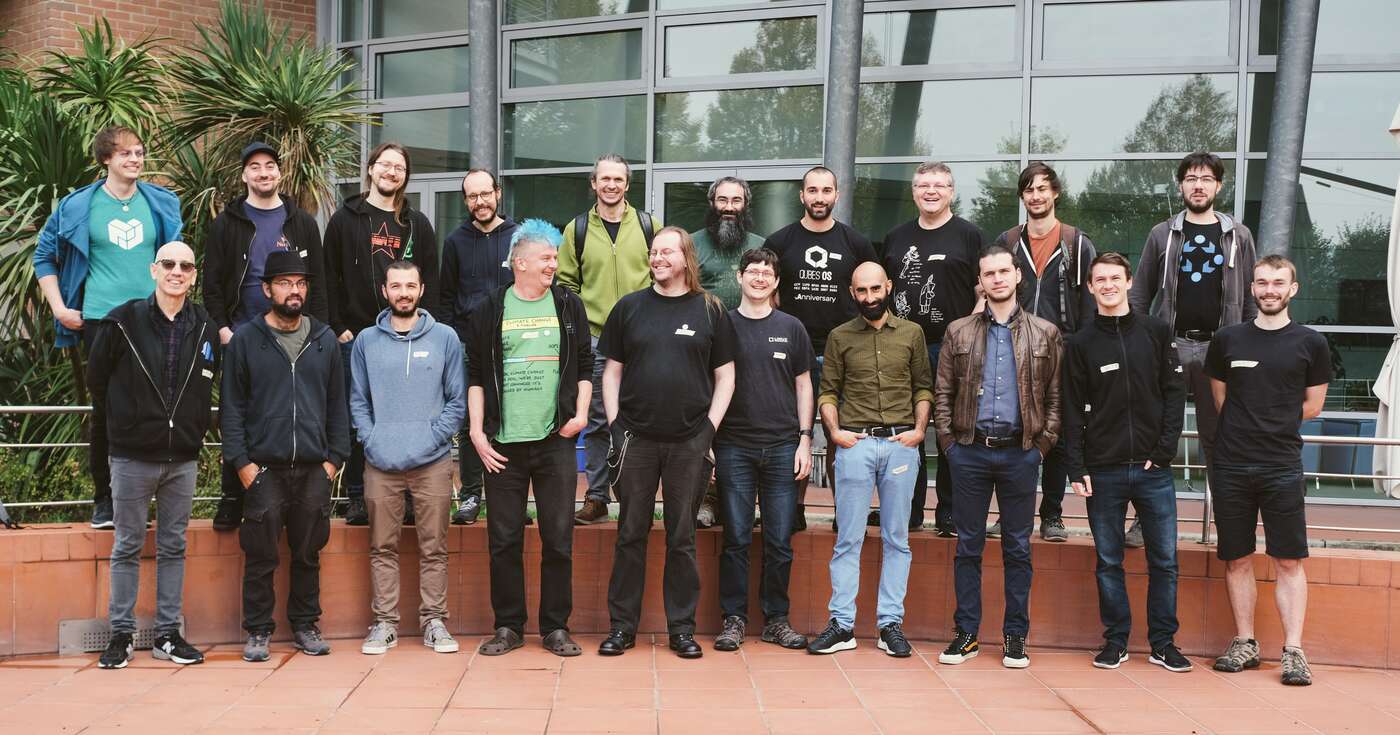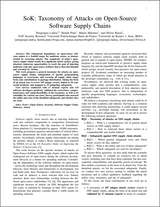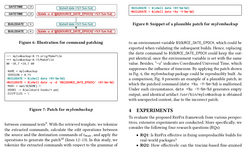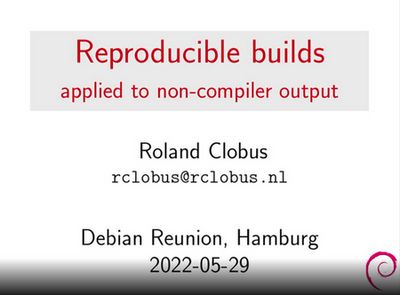
What happened in the
reproducible
builds effort this week:
Toolchain fixes
- Colin Watson uploaded groff/1.22.3-2 which implements support for SOURCE_DATE_EPOCH.
- Colin Watson uploaded halibut/1.1-2 which implements support for
SOURCE_DATE_EPOCH.
Chris Lamb filled a bug on
python-setuptools with
a patch to make the generated
requires.txt files reproducible. The patch has been
forwarded upstream.
Chris also understood why the she-bang in some Python scripts kept being undeterministic:
setuptools as called by
dh-python could skip re-installing the scripts if the build had been too fast (under one second).
#804339 offers a patch fixing the issue by passing
--force to
setup.py install.
#804141 reported on
gettext asks for support of
SOURCE_DATE_EPOCH in
gettextize. Santiago Vila pointed out that it doesn't felt appropriate as
gettextize is supposed to be an interactive tool. The problem reported seems to be in
avahi build system instead.
Packages fixed
The following packages became reproducible due to changes in their
build dependencies:
celestia,
dsdo,
fonts-taml-tscu,
fte,
hkgerman,
ifrench-gut,
ispell-czech,
maven-assembly-plugin,
maven-project-info-reports-plugin,
python-avro,
ruby-compass,
signond,
thepeg,
wagon2,
xjdic.
The following packages became reproducible after getting fixed:
Some uploads fixed some reproducibility issues but not all of them:
Patches submitted which have not made their way to the archive yet:
Chris Lamb closed a wrongly
reopened bug against
haskell-devscripts that was actually
a problem in haddock.
reproducible.debian.net
FreeBSD tests are now run for three branches: master, stable/10, release/10.2.0. (h01ger)
diffoscope development
Support has been added for Free Pascal unit files (
.ppc). (Paul Gevers)
The
homepage is now available using HTTPS, thanks to
Let's Encrypt!.
Work has been done to be able to publish diffoscope on the
Python Package Index (also known as PyPI): the
tlsh module is now optional, compatibility with
python-magic has been added, and the fallback code to handle RPM has been fixed.
Documentation update
Reiner Herrmann, Paul Gevers, Niko Tyni, opi, and Dhole offered various fixes and wording improvements to the
reproducible-builds.org. A
mailing-list is now available to receive change notifications.
NixOS,
Guix, and
Baserock are featured as projects working on reproducible builds.
Package reviews
70
reviews have been removed, 74 added and 17 updated this week.
Chris Lamb opened 22 new fail to build from source bugs.
New issues this week:
randomness_in_ocaml_provides,
randomness_in_qdoc_page_id,
randomness_in_python_setuptools_requires_txt,
gettext_creates_ChangeLog_files_and_entries_with_current_date.
Misc.
h01ger and Chris Lamb presented Beyond reproducible builds at the MiniDebConf in Cambridge on November 8th. They gave an overview of where we stand and the changes in user tools, infrastructure, and development practices that we might want to see happening. Feedback on these thoughts are welcome.
Slides are already available, and the video should be online soon.
At the same event, a meeting happened with some members of the release team to discuss the best strategy regarding releases and reproducibility.
Minutes have been posted on the
Debian reproducible-builds mailing-list.
 Contributing to Debian
is part of Freexian s mission. This article
covers the latest achievements of Freexian and their collaborators. All of this
is made possible by organizations subscribing to our
Long Term Support contracts and
consulting services.
Contributing to Debian
is part of Freexian s mission. This article
covers the latest achievements of Freexian and their collaborators. All of this
is made possible by organizations subscribing to our
Long Term Support contracts and
consulting services.
















 What happened in the
What happened in the